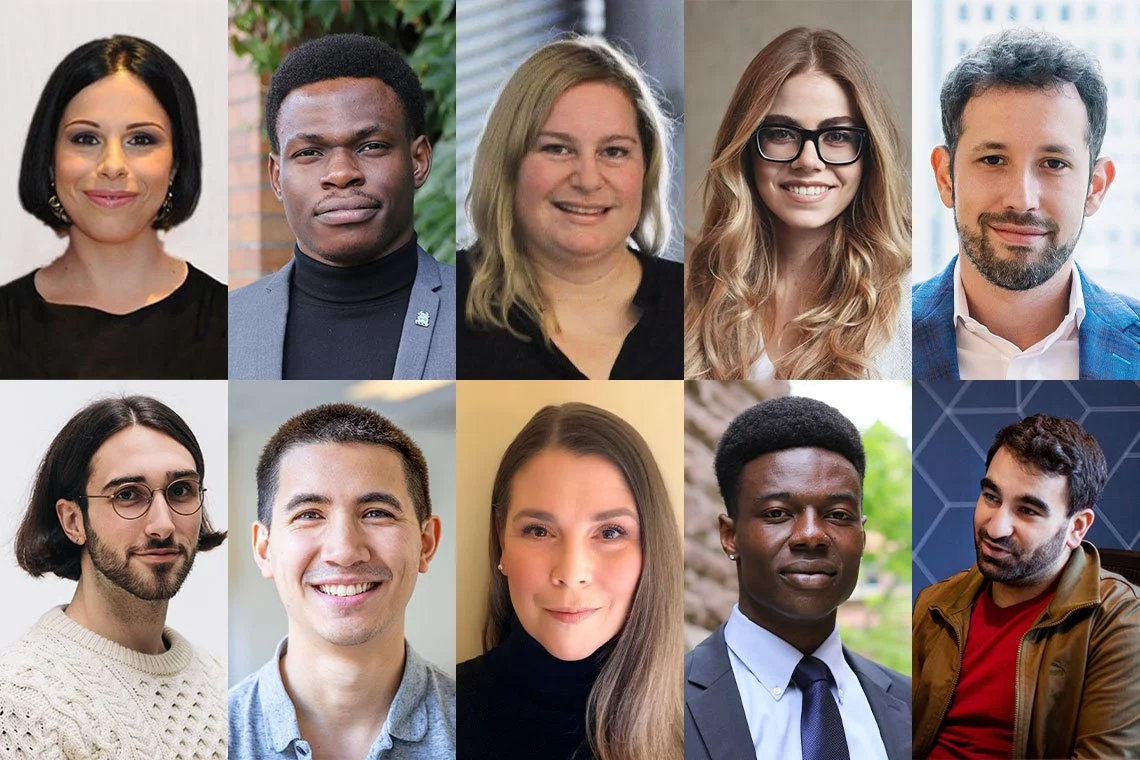Evan Kanter
Computer Science specialist, Political Science minor
Trinity College
Why did you choose U of T for your undergrad?
I was particularly attracted by the broad course of study options available within U of T’s Faculty of Arts and Science. I originally wanted to combine a computer science major with an ethics, society, and law major – that sort of interdisciplinary study is a unique benefit of studying computer science at U of T. While I ended up specializing in computer science and doing a minor in political philosophy (officially, political science), I found the opportunity to combine my interests studying in multiple different world-class departments to be extremely enriching and intellectually stimulating. I also knew that the U of T computer science department has outstanding teaching faculty that would make learning CS at U of T to be a very enjoyable and rewarding experience.
What inspired you to study computer science?
I was inspired by the endless possibilities to use computer science to improve society and help people. Technology has such a far-reaching impact and is changing the way people live and society functions, so I knew that studying computer science would enable me to make an impact in pretty much any industry. Additionally, I grew up in a family of engineers and tinkered with computers as a kid. From programming LEGO robots as part of the FIRST Lego League in middle school, and later from high school computer science classes, I learned that I found the type of problem solving we do in computer science to be really exciting, and so I was sure that I’d enjoy studying CS in my undergrad.
Who or what at U of T influenced your education the most?
The teaching stream faculty in the Department of Computer Science are all super kind and understanding and are amazing teachers. Teachers like David Liu, Karen Reid, Paul Gries, Mike McCarthy, Steve Engels, Jacqueline Smith, Michelle Craig, and François Pitt made a huge difference in my learning at U of T and I can’t thank them enough for all the effort they put in to make learning computer science fun, accessible, and appropriately challenging.
How did you get involved at U of T outside of your coursework?
Firstly, I had the pleasure of being a TA for four different computer science courses over the last two years and working with Professors David Liu and Mario Badr to develop the course materials for the new first-year CS foundations courses CSC110 and CSC111. You learn the material to a much higher degree of mastery when you have to teach it, get the pleasure of working with students, and learn really valuable communication skills (that are super helpful in technical interviews!), so these teaching experiences were very rewarding.
I also got heavily involved in governance and student advocacy at U of T. I served on governance committees of the Faculty of Arts and Science, including the Arts and Science Council, Committee on Standing, and Curriculum Committees. This past year I served as a Governor on the University’s Governing Council, as well as the Business Board, University Affairs Board, and Academic Appeals Committee. I also had the role of Director of External Relations and later Advocacy Lead for the Computer Science Student Union (CSSU), through which I organized multiple networking and professional development events and founded and led the CSSU’s Same Degree, Same Fee campaign that continues to advocate for more equitable tuition for computer science, bioinformatics, and data science students. All these experiences in governance and advocacy were very meaningful to me – they were an opportunity to contribute to the improvement and growth of the university and to ensure that students are well represented in the governance process of the university.
What U of T memory do you treasure the most?
I remember the awe at how alive the campus was and how exciting being a student felt as I walked from class to class on campus as a first-year, the fall sun beating down upon me. That feeling is one that will stay with me.
If you could go back and give yourself one piece of advice at the start of your undergraduate degree, what would it be?
Start early on your assignments, do all the readings and prep before class, and make sure to set aside plenty of time to relax, socialize, and have fun.
Is there a lesson you learned as an undergraduate student that you’ll take with you moving forward?
There’s no such thing as a stupid question — never be afraid to ask a question in class or in many other settings; asking will be helpful to you and almost certainly to others in the room with you.
What’s next for you?
I’m moving to the San Francisco Bay area where I’ll be working as a Software Engineer for Meta Platforms. I’m excited by the opportunity to join Meta to help improve the way people communicate on such a massive scale. There are all kinds of ethical issues at play in the products that Meta delivers and I look forward to using what I’ve learned at U of T about computer science, ethics, and political philosophy to work on these important issues.




















